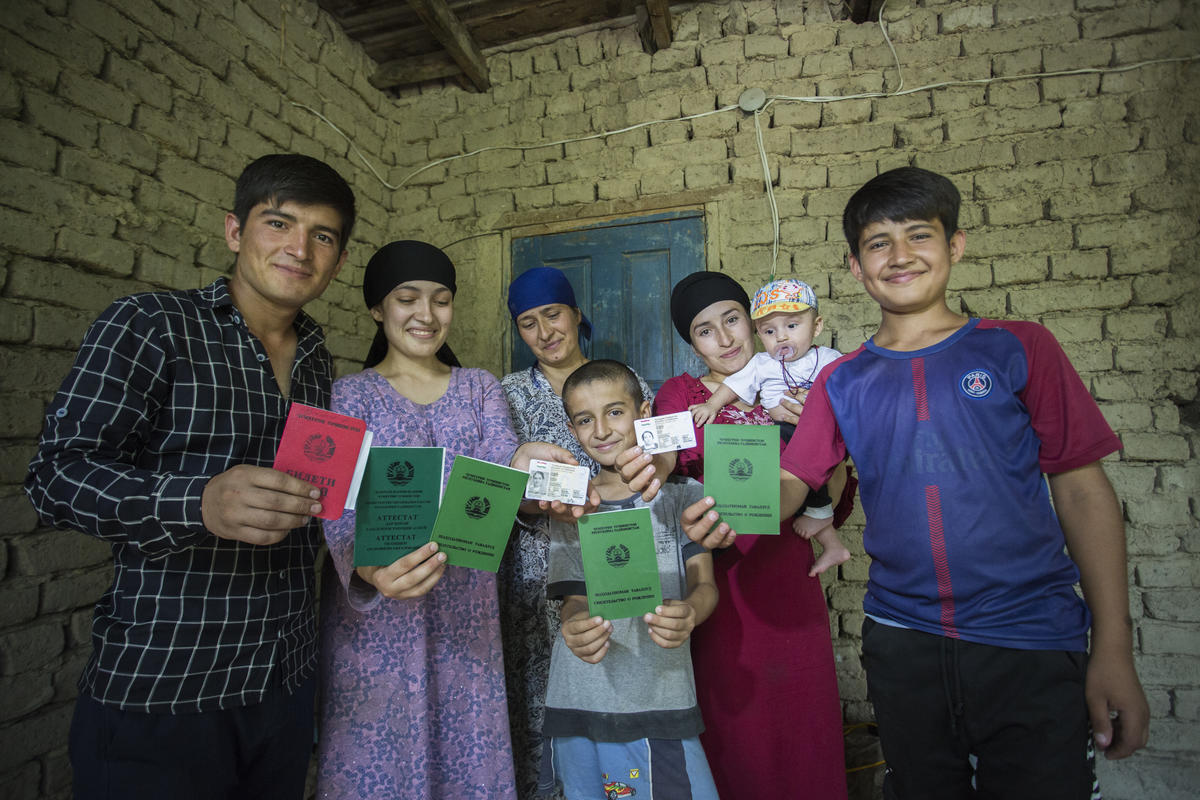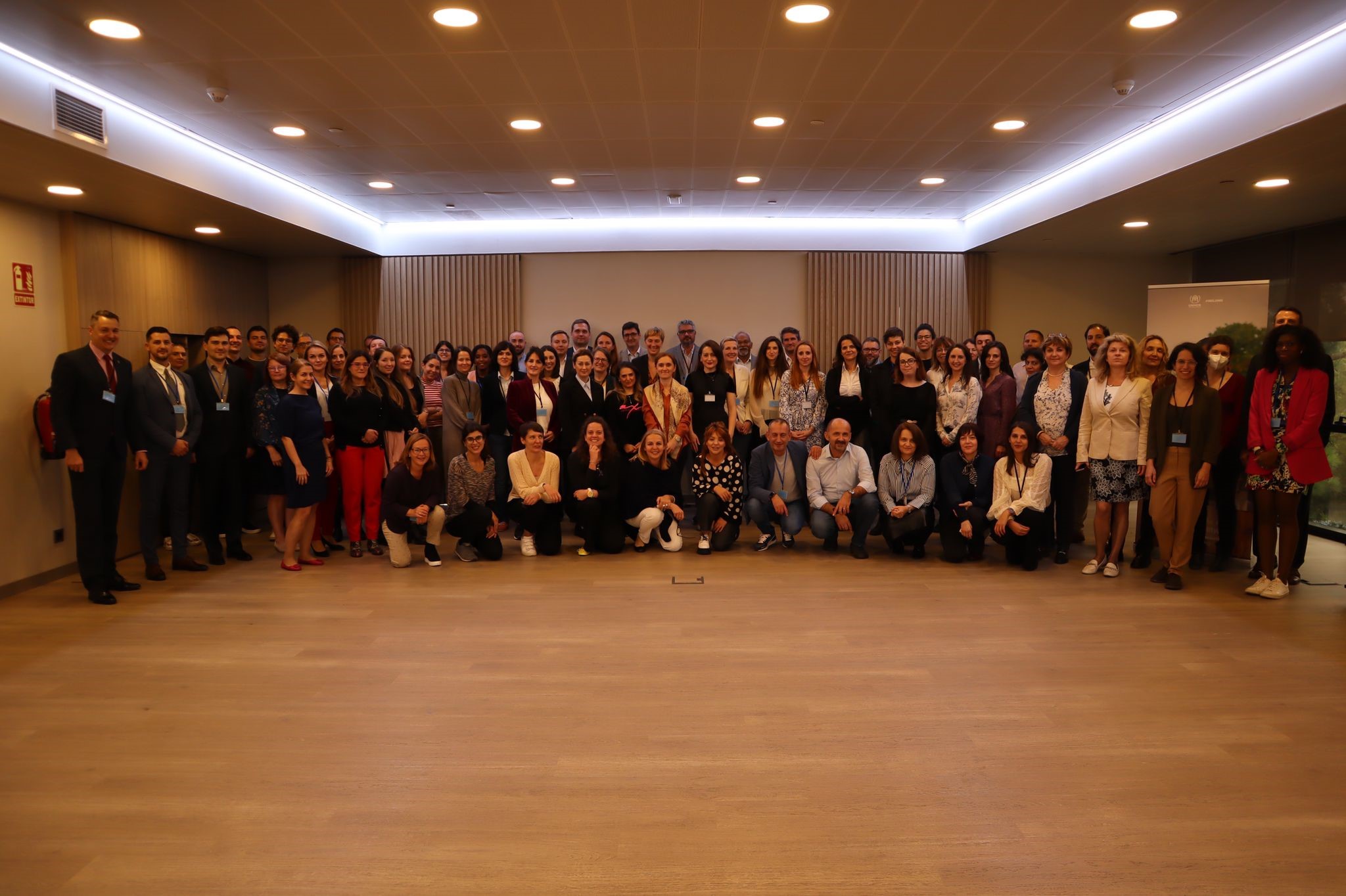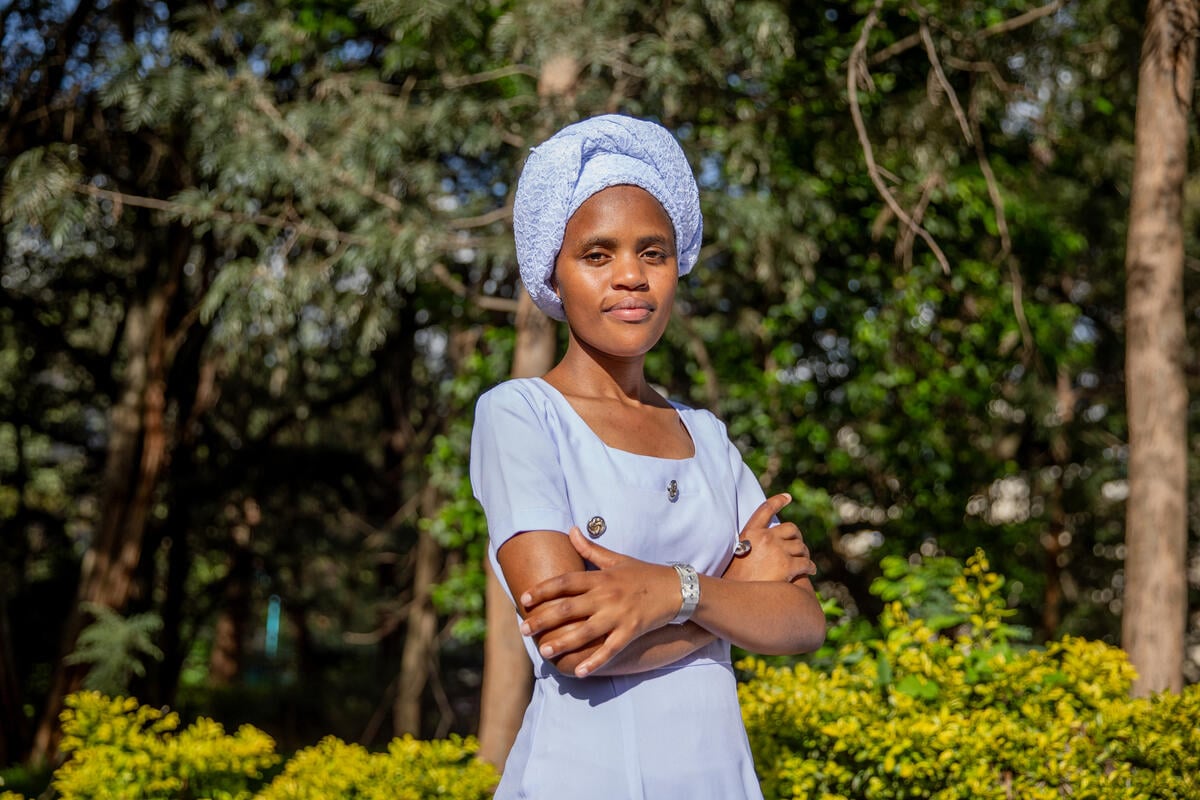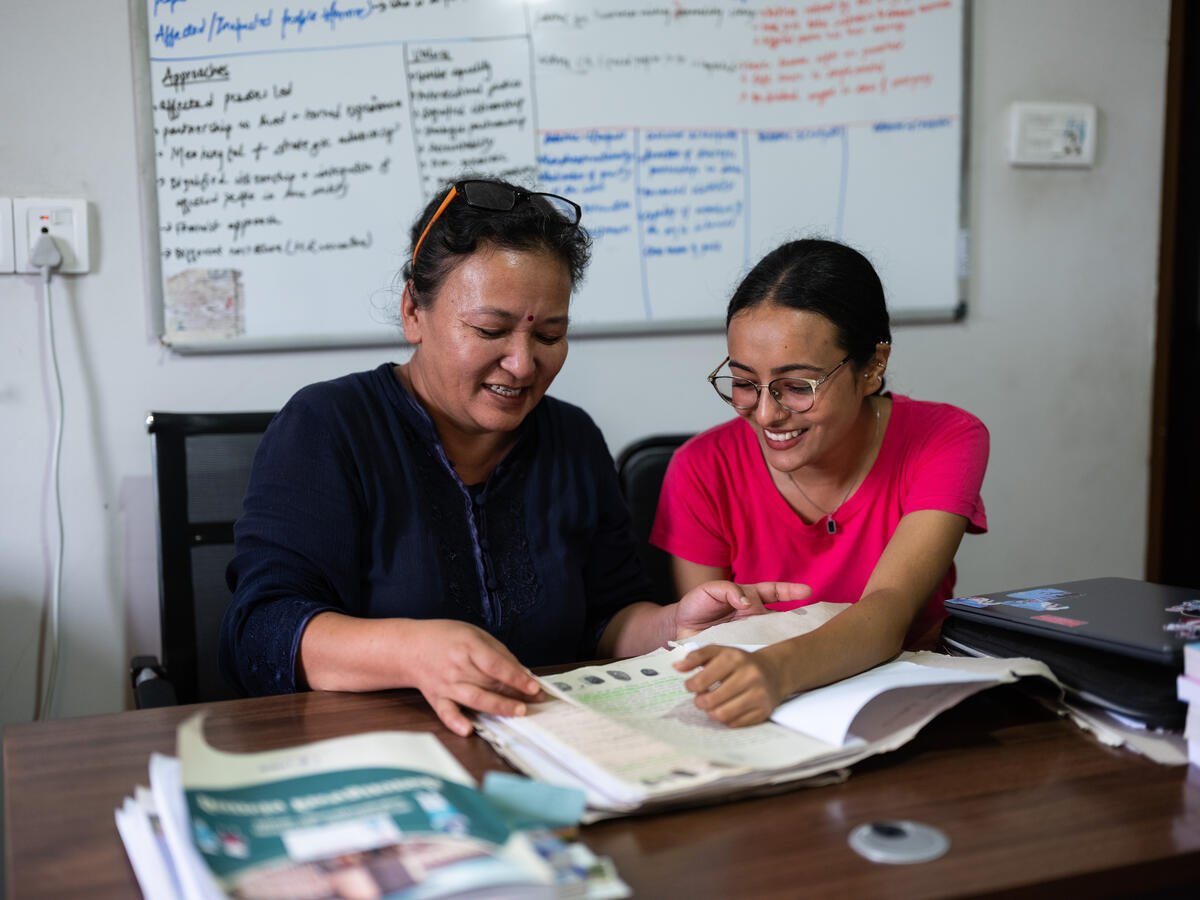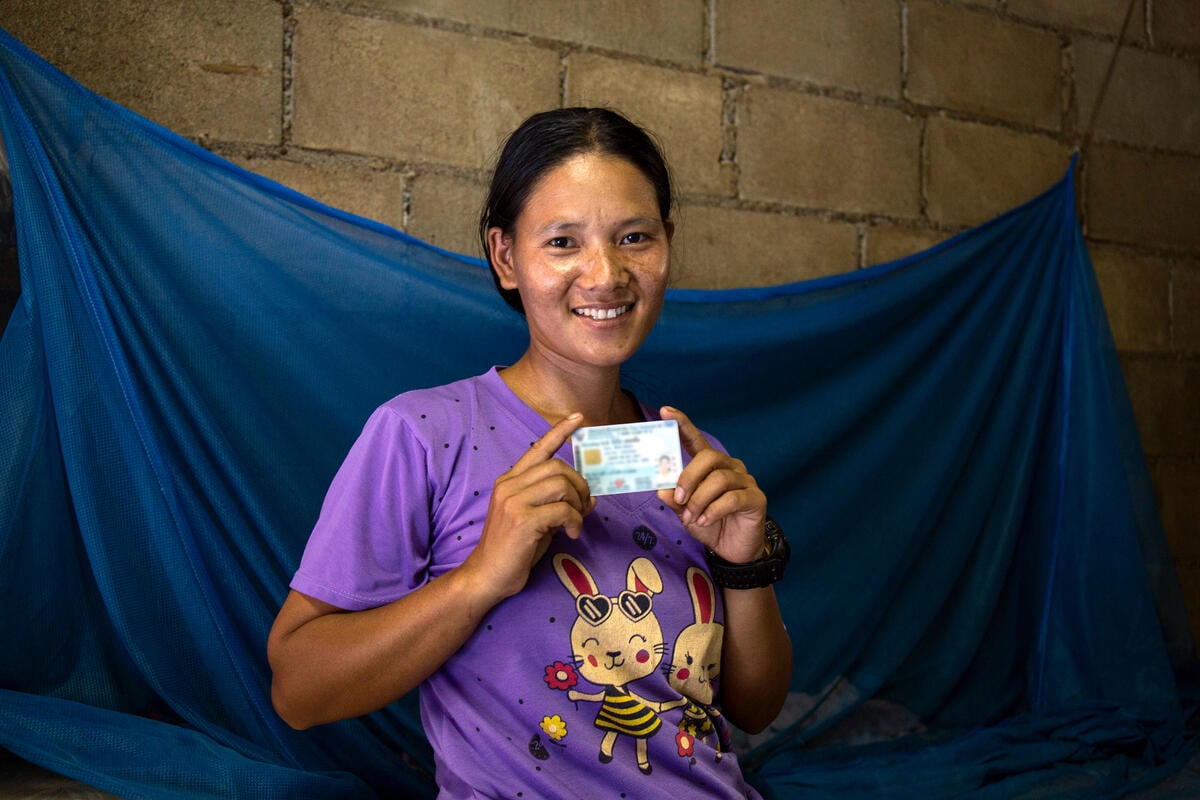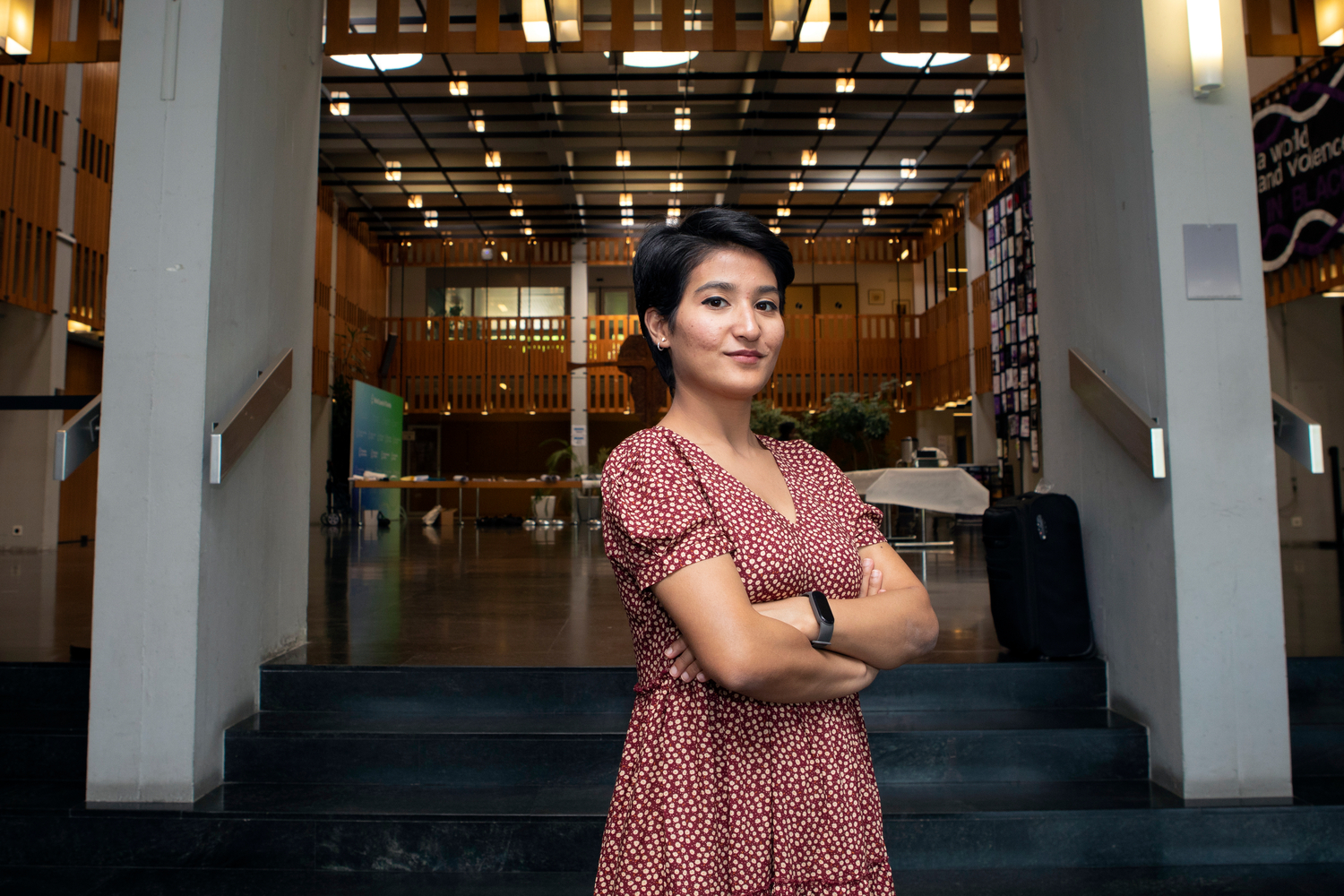Census aims to improve the lives of refugees in the Dominican Republic
Census aims to improve the lives of refugees in the Dominican Republic

SANTO DOMINGO, Dominican Republic, February 6 (UNHCR) - The UN refugee agency and its partner organization Pastoral Haitiana have launched an unprecedented census aimed at improving the lives of hundreds of refugees and asylum-seekers in the Dominican Republic.
The census, which began last week with funding from the United States administration, will provide more accurate data on the number of refugees in the Caribbean nation and will record basic information such as age, gender, nationality, place of current residence, and family details.
UNHCR, for the first time, is using mobile phones rather than pen and paper to record and digitalize this information, saving valuable time and resources. This equipment will also enable UNHCR-trained and supported census staff to take pictures and include satellite navigation data [GPS] as part of the registration process. The exercise will continue into March.
At the end of last year, there were an estimated 595 refugees and 1,785 asylum-seekers living in the country. While most are Haitian, there are also people from countries such as Cuba, Iran, Iraq, Sri Lanka and Syria. The majority live in urban areas around the capital, Santo Domingo.
The census will also provide an overview of the documentation status of this population. Most refugees in the Dominican Republic were recognized as such in the mid 1990s, but were never able to obtain legal residence in the country. Asylum-seekers have been waiting in some cases for more than 10 years for their claims to be decided, holding state-issued certificates which need to be renewed every three months and do not allow them to work.
"This census can be a useful tool for both UNHCR and the Dominican government," said Gonzalo Vargas Llosa, head of the refugee agency's office in Santo Domingo. "By identifying where individuals are today and re-establishing contact with them, this exercise can contribute significantly in our joint efforts to reactivate the asylum system for individuals who have been waiting years for a decision," he added.
Refugee leaders and asylum-seekers welcomed the census, hoping it would bring about positive changes for them. "This will not solve all the problems my family and I have, but we feel that we count and that we are now being taken into consideration", said Joseph, a community leader.
The census was preceded by an information campaign and intensive consultations with community leaders to ensure that refugees and asylum-seekers are aware of the importance of being registered.
In August 2011, the National Commission for Refugees (CONARE) requested UNHCR´s support to locate asylum-seekers in the country and prepare an initial assessment of their claims. The Dominican government later pledged at a landmark ministerial meeting in Geneva to strengthen CONARE's work and improve the procedure to deal with pending and future asylum cases.
UNHCR has pledged its full support to the Dominican authorities in this significant undertaking. As CONARE has not met since 2005, its reactivation is key in ensuring individuals can exercise their rights and duties under the 1951 UN Refugee Convention.
By Federico Martinez in Santo Domingo, Dominican

